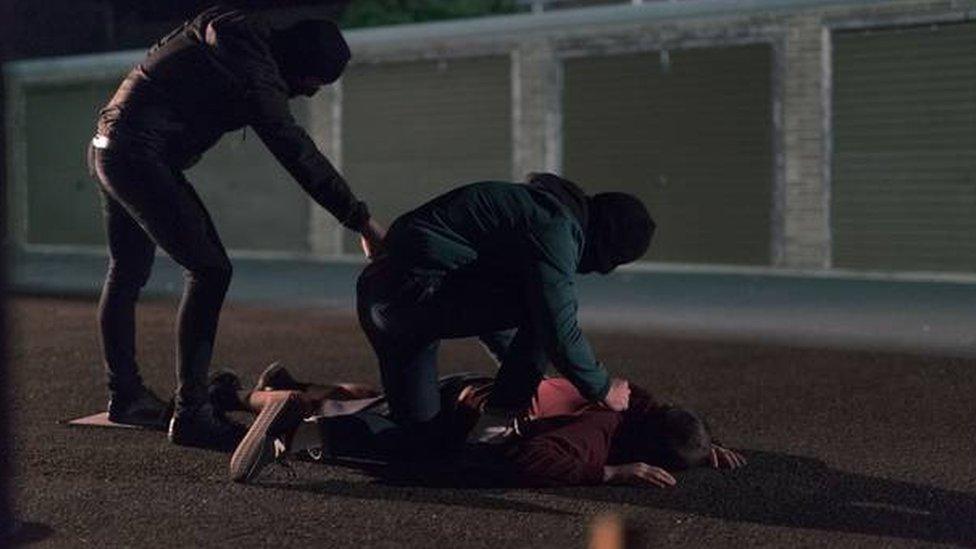Simon Byrne: PSNI chief 'coming after' paramilitaries
- Published
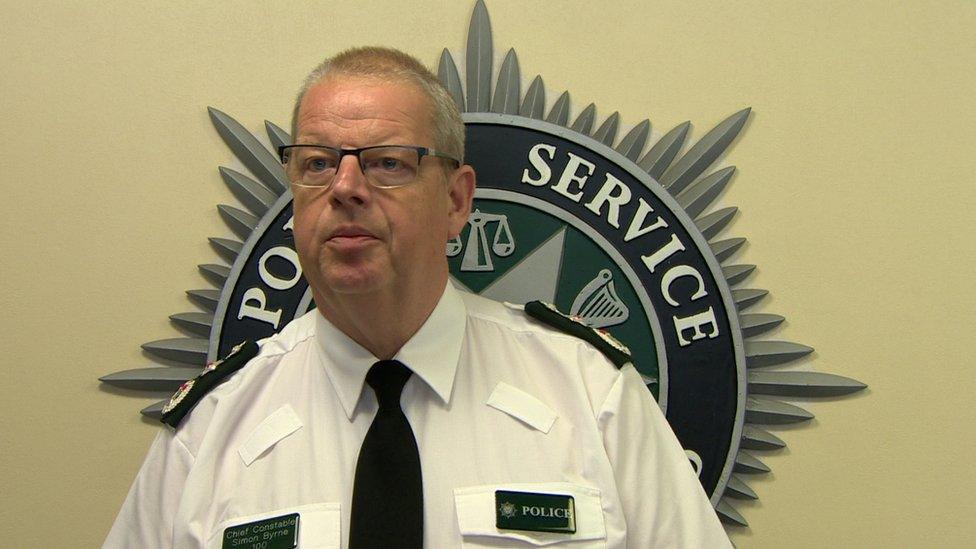
Simon Byrne took over the top job in the PSNI in June
The chief constable of the Police Service of Northern Ireland is "coming after" paramilitaries.
Simon Byrne, who has been in the job for 100 days, said one of the force's priorities was tackling paramilitary crime.
He said one of his reasons for calling for more officers was "to give people more confidence to come forward".
Mr Byrne said he wanted to ensure the police were "the only legitimate power and control" in communities.
"I will use every power that's available to me and my officers both within criminal and civil law to dismantle your networks and put you in jail if you prey on communities," he told the BBC's Stephen Nolan.
"One of the big questions on people's lips is how such small numbers of people exercise such power and control over their communities and punish drug dealing and anti-social behaviour to show kind of legitimacy? We can't tolerate that.
"It's one of the reasons I'm calling on more police officers because I think it will give people more confidence in communities to come forward and tell us who is peddling drugs, extorting or causing harm."
The Police Service of Northern Ireland (PSNI) currently has 6,700 police officers and Mr Byrne said they were dealing with about 90 organised crime groups, across a number of nationalities.
He said a review was under way into how "to dismantle these people and organisations" but it would take time "to unpick the Mr Bigs".
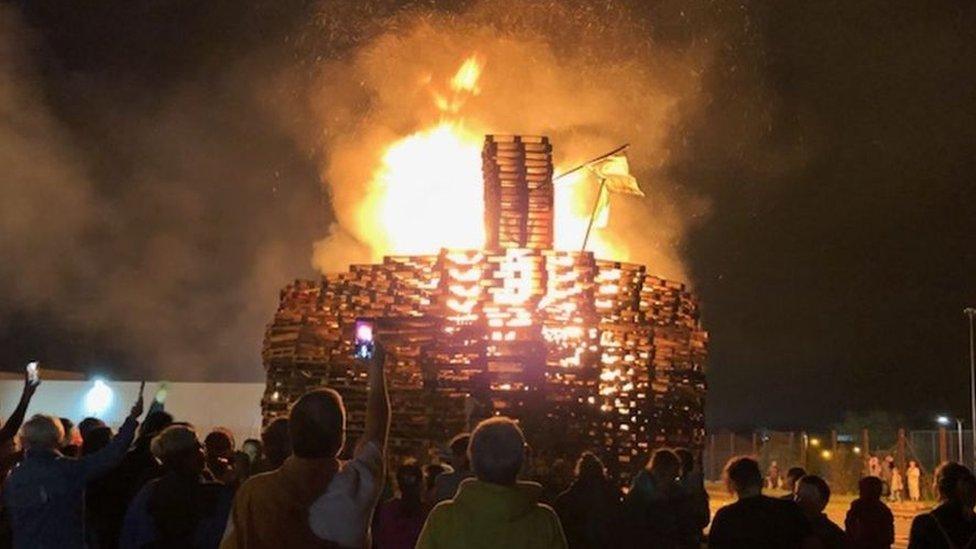
The bonfire at Avoniel Leisure Centre was part of the Eleventh Night celebrations
In July, Mr Byrne said the PSNI would "not tolerate" the Ulster Volunteer Force (UVF).
The comments came after police told Belfast City Council the loyalist paramilitary group was involved with a controversial bonfire at Avoniel Leisure Centre.
'Copycat violence'
On Tuesday, he said the police's handling of the bonfire was based on a "whole range of intelligence".
He said Northern Ireland was due to host The Open golf championship in Portrush and he had to think of the "bigger picture".
"Did we want to get 'played' and get drawn into a conflict frankly about taking down a load of pallets which really should have been dealt with earlier?
"The intelligence we had was there were elements, including the UVF but not specific to them, involved and there was a lot of emotion around what that bonfire meant to people, so had we gone in heavy-handed there could have been conflict.
"It was about trying to see the bigger picture about how one issue could have led to copycat violence across Northern Ireland.
"I didn't think the means justified the ends."
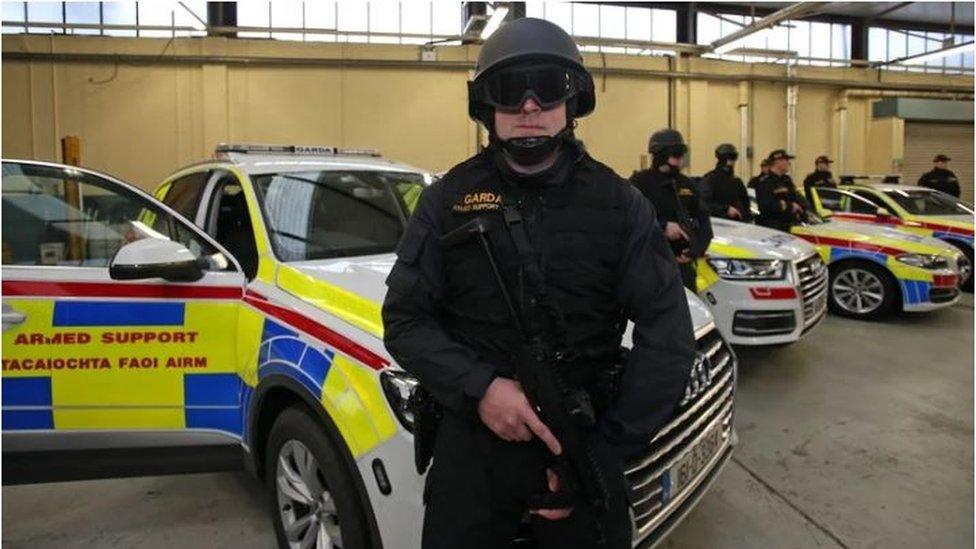
Irish police have a new armed support unit for policing the border region
Mr Byrne also said he "had no evidence to suggest the IRA army council still exists".
In 2015, his predecessor George Hamilton said the organisation still existed.
He added the threat of dissident republican terrorism to his officers was still severe and the PSNI had prepared for "a range of different scenarios" after Brexit.
Last month, in the Republic of Ireland, a new armed support unit for policing the border region started operations.
But Mr Byrne said the PSNI already had armed officers and specialised teams available if needed.
- Published13 July 2019
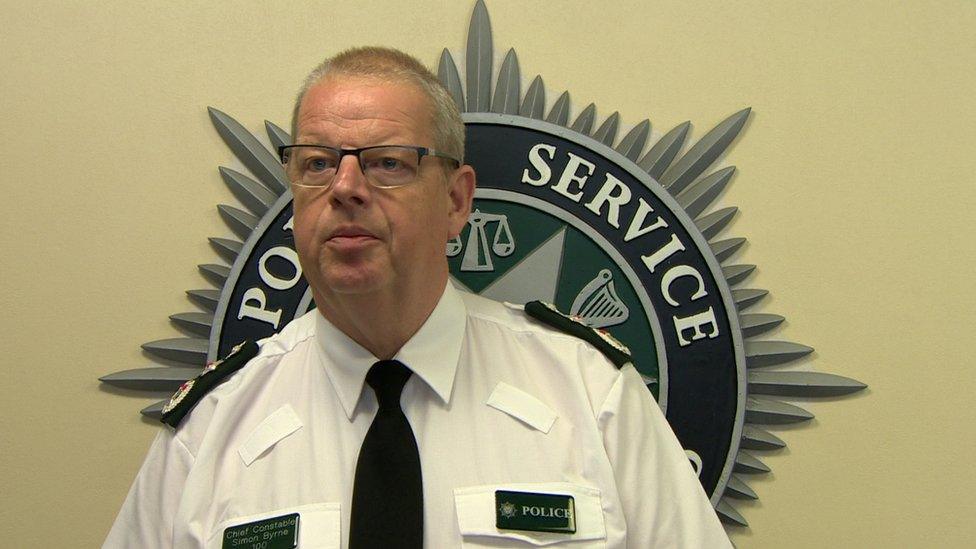
- Published5 September 2019
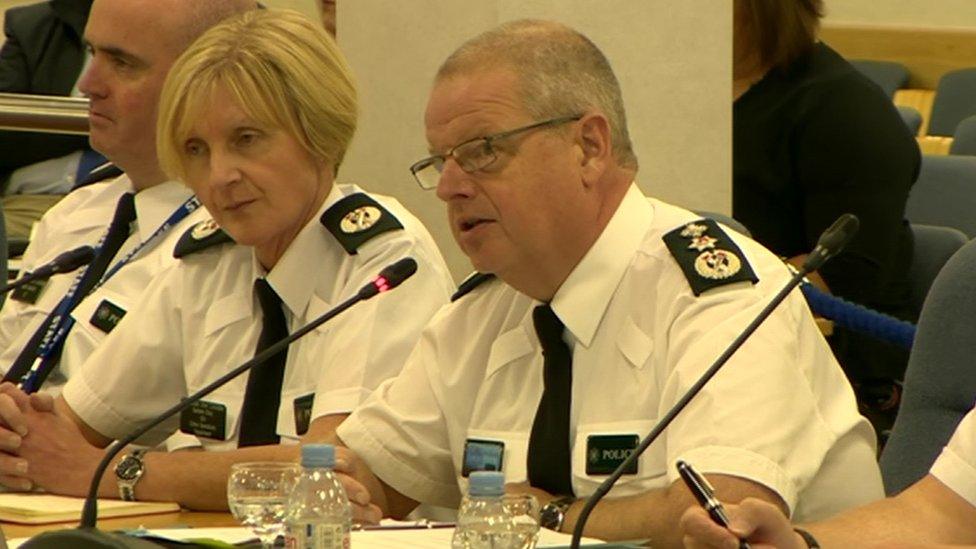
- Published30 September 2019
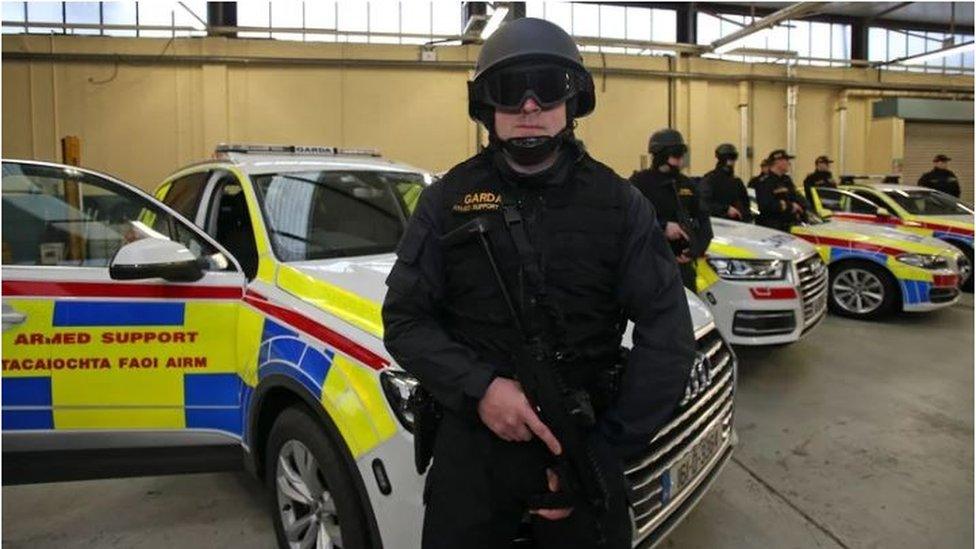
- Published3 October 2019
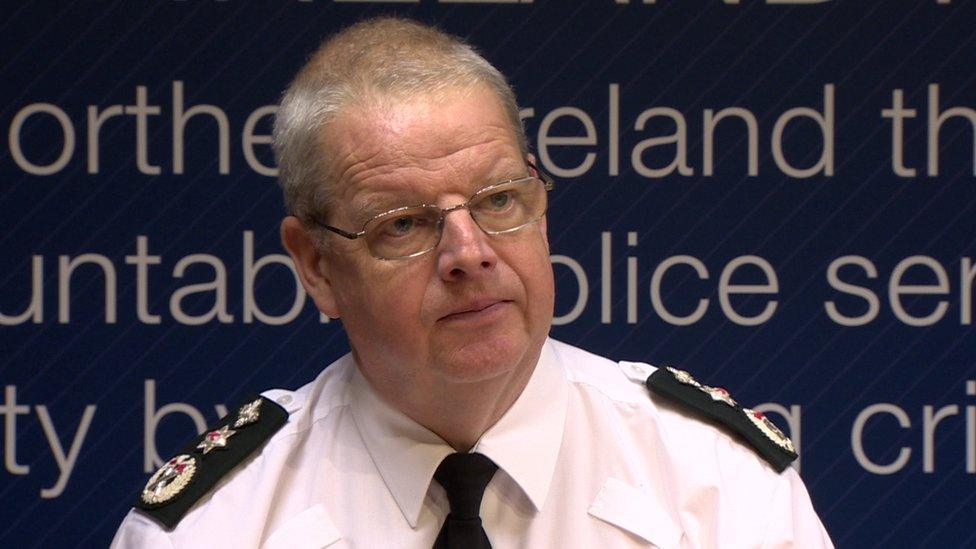
- Published5 August 2019
